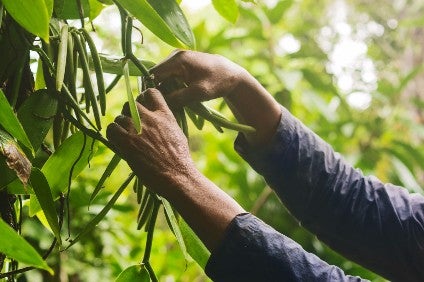
Mars and Danone have launched an initiative to improve the quality of vanilla cultivated in Madagascar.
The companies have devised a programme to help smallholder farmers “restore vanilla quality while increasing farmers’ food security”, according to The Livelihoods Fund for Family Farming, a fund Mars and Danone helped set up in 2015 to make agricultural supply more sustainable. Mars and Danone formed the fund alongside ingredients supplier Firmenich and water management company Veolia.

Discover B2B Marketing That Performs
Combine business intelligence and editorial excellence to reach engaged professionals across 36 leading media platforms.
The project, to be implemented through The Livelihoods Fund for Family Farming, aims to triple farmers’ revenues and provide companies with quality and fully traceable vanilla over a ten-year span.
Some 80% of global vanilla production is concentrated in a small area in the north of Madagascar but vanilla farmers lack efficient practices and finance to grow high-quality vanilla, nor can they plan ahead to sell cured vanilla.
Vanilla prices have also been subject to severe volatility due to a lack of cash flow pushing farmers into harvesting their vanilla too early, leading to poor quality in the market.
This project, with 3,000 family farms, aims to tackle not only quality and traceable vanilla production but also food security for farmers and biodiversity conservation, The Livelihoods Fund for Family Farming said.

US Tariffs are shifting - will you react or anticipate?
Don’t let policy changes catch you off guard. Stay proactive with real-time data and expert analysis.
By GlobalDataA newly created farmer-owned cooperative will seek to connect producers more directly to markets and will collect the vanilla, cure it and export it to the project partners. Through this work, it is estimated that around 60% of cured vanilla’s value will go back to farmers, instead of 5% to 20% today, The Livelihoods Fund for Family Farming claimed.
The project will also tackle food security with a special focus on rice production as well as crop diversification for a more balanced daily food intake for farmers.
All partners in the Livelihoods-Vanilla project have committed to the project over a ten-year span. The Livelihoods Fund for Family Farming bears the upfront financial risk by providing EUR2m (US$2.3m) to implement the project and to fund monitoring related to sustainable vanilla production.
Danone, Firmenich and Mars purchase significant volumes of vanilla for their own products and brands. They have joined forces with Prova, an ingredients supplier to Mars, and will purchase vanilla produced by the project. The Livelihoods Fund for Family Farming will be gradually refunded through a result-based fee paid by the four companies that buy the vanilla and benefit from the project.
Pascal de Petrini, vice-president for cycles and operations at Danone, said: “We are very enthusiastic about the Livelihoods-Vanilla project in Madagascar with Mars, Firmenich and Prova. It is a great illustration of a farming model which secures our supply chain while bringing environmental and social benefits.”
Victoria Mars, a board member of Mars, added: “Our engagement with the Livelihoods Fund is one of the ways we are partnering with and learning from others to improve the sustainability practices used to grow our raw materials,and to make sure that the farmers that grow these crops are treated fairly and have an opportunity to thrive. Our objective is to also reapply learnings from this work to other parts of our supply chain to increase the scale of positive impact from these projects.”





